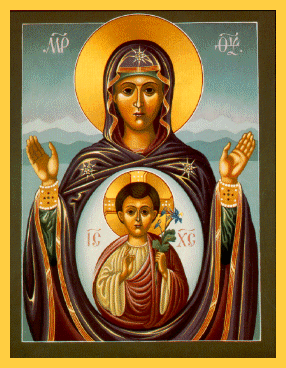Christians are challenged to reflect on three realities during this season, realities that encompass the past, the present and the future.
WE LOOK TO THE PAST.
On the first Christmas, over 2000 years ago, Jesus Christ, the only-begotten Son of God and Second Person of the Blessed Trinity came to earth as a baby, to live among us, to show us what God is like, and finally to suffer and die on the cross to atone for our sins, so that we might live forever with Him in Heaven.
Why did the Creator of the universe choose to arrive on earth as a impoverished child, without even a bed to call his own? Everyone loves a baby and that is what God desires of us, that we return the great love He has for each of us. He does not want obedience motivated by fear, but by love.
We cannot love what we do not know. Our human brains are just not equipped to comprehend the essence of the Creator of the universe. Jesus came to put a human face on God. He showed us God's power, His wisdom, His compassion and love. Jesus was God in a human body.
After the resurrection, Jesus sent the disciples out with power, wisdom and eloquence to proclaim the good news of salvation and to work for the coming of His kingdom on the earth.
WE LOOK AT THE PRESENT.
The celebration of Jesus' birth has become a secular festival of over-indulgence, extravagance and flamboyance. Many Christians hesitate to even say "Merry Christmas" for fear of being politically incorrect. Santa Claus is much more in evidence than Baby Jesus.
Our world is in a sorry state. Hostilities, conflicts and intolerance dominate international relations. Weapons of mass destruction are spreading to an increasing number of rogue nations. New diseases are appearing and pollution and climate change threaten the very survival of the human species.
Society itself seems to be in a downward spiral. The traditional family structure is under attack. Christian congregations are shrinking and churches are closing. In too many cases, those called to be pastors, role models for the young in the present day, are revealed to have feet of clay.
Whatever happened to the coming of the kingdom?
WE LOOK TO THE FUTURE.
The Son of Man is going to come with his angels in His Father's glory, and then He will repay everyone according to what he has done. Matthew 16: 27
When Jesus returns, He will not be a sweet, innocent baby. He will come as an all-just judge. He will look each of us in the eye and ask, "What have you done to promote the spread of My kingdom on the earth?"
Unfortunately many of us, Christians included, may have to lower our gaze and whisper, "Really not much, Lord."
Many present-day disciples have been distracted by the customs, the behaviors, and the priorities of the post-Christian society in which we live. Advent is a time for returning to our roots and to God's friendship. We need to divert our attention from the hustle and bustle of the world around us and to focus, at least for a while, on eternal realities.
Advent, then, is a time for reflection on the first coming of Jesus, on the present state of our souls and of the world, and on Jesus' return to earth. No one knows exactly when that day of reckoning will be, but considering the signs of the times, many people agree that it can't be far away.
Advent is a brief but important annual observance in the calendar of the Christian church. Wise persons among Jesus' contemporary disciples will take full advantage of the insights and graces it has to offer.

No comments:
Post a Comment